I found myself popping out of a packed dolmuş onto the side of a winding country road. Shortly after, my overstuffed tan hiking bag toppled out after it, too, had squeezed out of the sea of people inside; seconds after it landed, I watched as the door shut and the green minivan sped away around the curve toward its Black Sea-side terminus of Kefken. I grabbed my pack and glanced up to catch sight of my destination: a collection of modern, box-shaped wooden buildings silhouetted by rich green pine trees that was the site of an eco-hotel, nature education center, and organic farm called Narköy. I had arrived as a farm volunteer through an ecological farm-stay program called TaTuTa, seeking an alternative Turkish experience after a month of urban adventures in İstanbul on both sides of the Bosphorus.
Getting out of the city and onto the farm
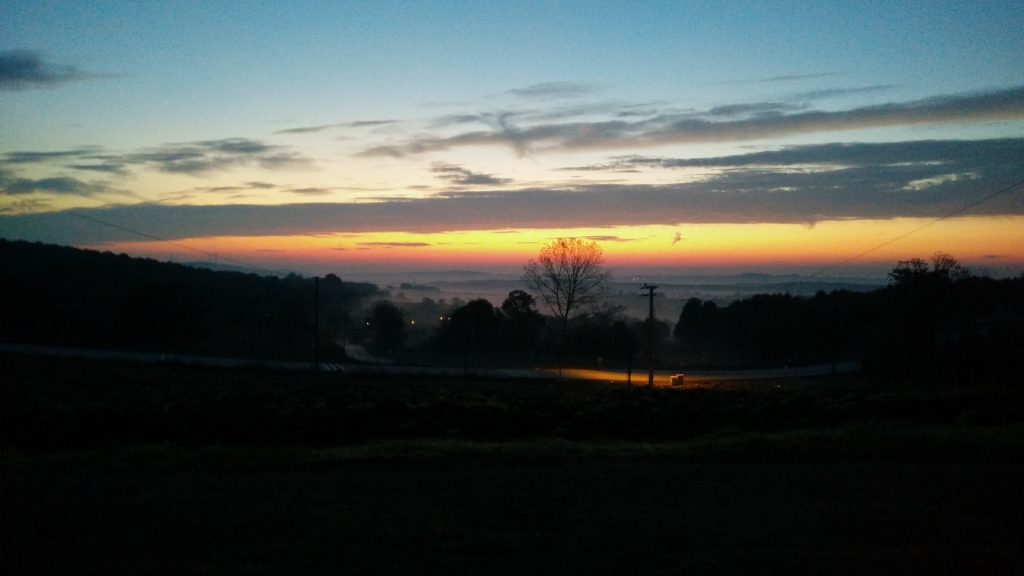
People interested in organic farming may have heard of the international organization WWOOF (pronounced “woof” and standing for World Wide Opportunities on Organic Farms). TaTuTa is a project of the Turkish branch of this organization, and the way I ended up at Narköy. After paying an annual membership fee of around €30 (if you use the site in Turkish, the fee is only 60 lira—the perks of language learning!), I was able to access contact information of host farms around Turkey for a year. The site is offered in English and Turkish only, and may be a better bet if you are interested in working at places that draw more local volunteers, although some farms are listed on both sites. Their database is searchable using criteria including by location, volunteer work needed, availability, languages spoken by hosts, among others. I then contacted a few farms around the country, and ended up selecting Narköy; it had good reviews, was just a few bus rides and a short jaunt on a dolmuş away, and at that time (October 2017) still needed help with the work I wanted to assist with—harvesting, animal care, and planting. Room and board are covered by volunteer work at the farms—usually not more than 25 hours a week—but for some farms, there is an option to pay a little bit of money to skip the volunteering and stay as a guest.
Another option for finding these kinds of volunteer experiences is Workaway, which encompasses a broader range of volunteer opportunities—not just at organic farms, but also at meditation centers, family homes for childcare, artist retreats, and so on—and is not limited to Turkey. Workaway also requires an annual fee of about €30, which unlocks access to these opportunities and allows searching by country, location, and type of experience they want to have. The site is offered in a few languages, though Turkish is not one of them. Workaway is a good option for people who will not be staying in Turkey for long because opportunities are listed worldwide.
So, I made contact with the farm and decided upon an arrival date and tentative departure date; volunteers are expected to stay at least two weeks at Narköy, though each farm has different needs (and is dependent upon how volunteers get along with the hosts). I then had a Turkish friend help me book a bus ticket from Esenler station that took me via İzmit to the small town of Kandıra. There, I caught the dolmuş that, for a few lira, dumped me off at the farm entrance.
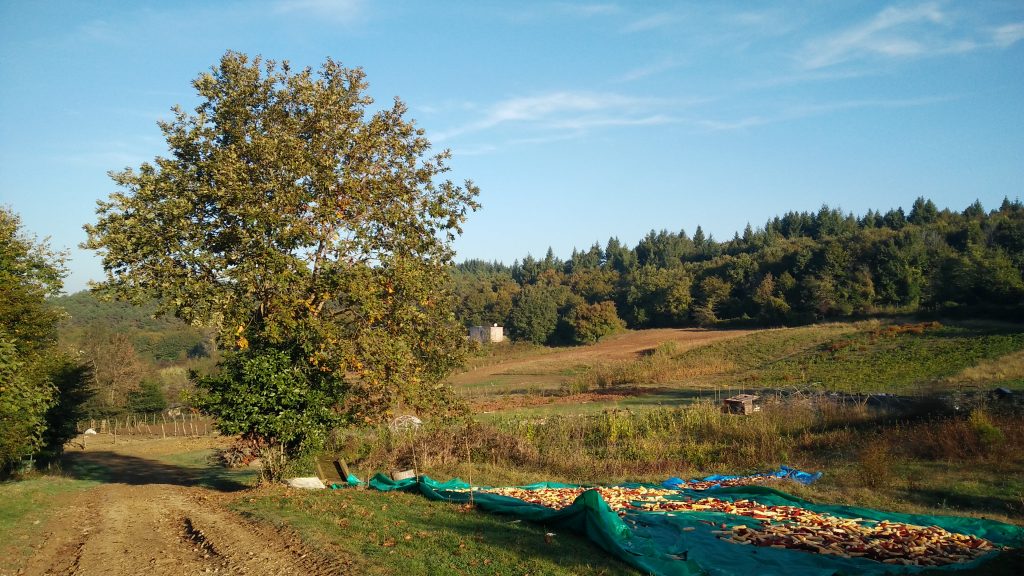
Living and Working at Narköy
The few weeks I spent at Narköy was a moving, amazing experience—though to be honest, I did not really know what to expect. My interest in working on a farm came from a few conversations with Turkish people who had done TaTuTa, as well as my interest in getting outside of the city while avoiding mainstream tourist destinations and finding an opportunity to develop my Turkish outside of the hostel or bar. Coming from an agricultural region of the United States, I was not exactly a stranger to farms; my first phrase growing up was “grain bin” according to my dad, though I had not spent any time working at one.
I was curious about small-scale, organic farming as well as alternative tourism, so the eco-hotel and learning center at Narköy stood out to me. Plus, I was excited about getting somewhere in the country on wheels rather than further away on wings, and was looking forward to spending time with some different kinds of people. When I arrived, the volunteers included two Americans, a Jordanian, and two Spanish guys, and a Turkish woman came my second week. Summers (I imagine) are a bit busier, but the size of the group was a good one: we came from very different backgrounds and learned from each other (a few having been experienced farmers), and stuck with each other for most of the time, learned how to get along with and, at times, care for each other.
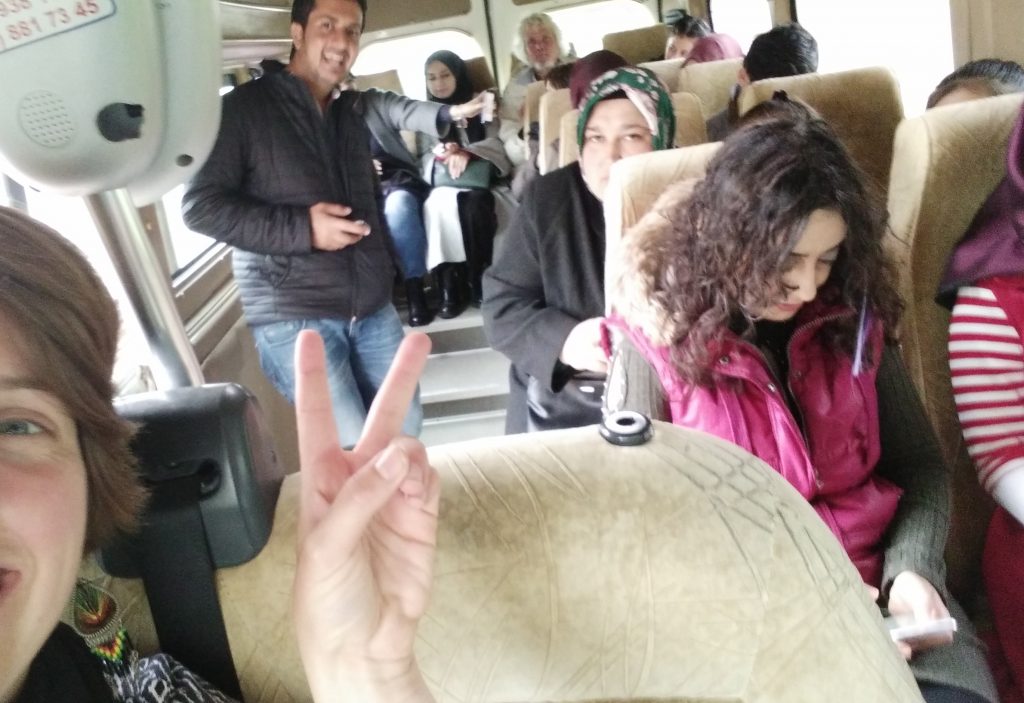
Volunteers at Narköy slept in sectioned-off beds in a large tent, which was a simple but sturdy wooden structure with a hard plastic roof and a bit of insulation. In the chilly October evenings, the fire stove (which fed on nutshells) warmed the place up; midnight trips to the toilets outside were quick, to say the least! Volunteers were responsible for keeping the place clean, and on Saturday mornings split the chores of cleaning our tent along with the toilets and the common room, used by us in off-hours and as the dining room when it wasn’t warm or dry enough to eat at the large table outside. We shared breakfast and lunch with the farmers (who lived off-site), and were responsible for setting and clearing the tables at each meal. The food we ate was locally sourced, most coming from the fields, greenhouse, and animals, and prepared by the professional chefs at the hotel which lay adjacent to the rest of the farm.
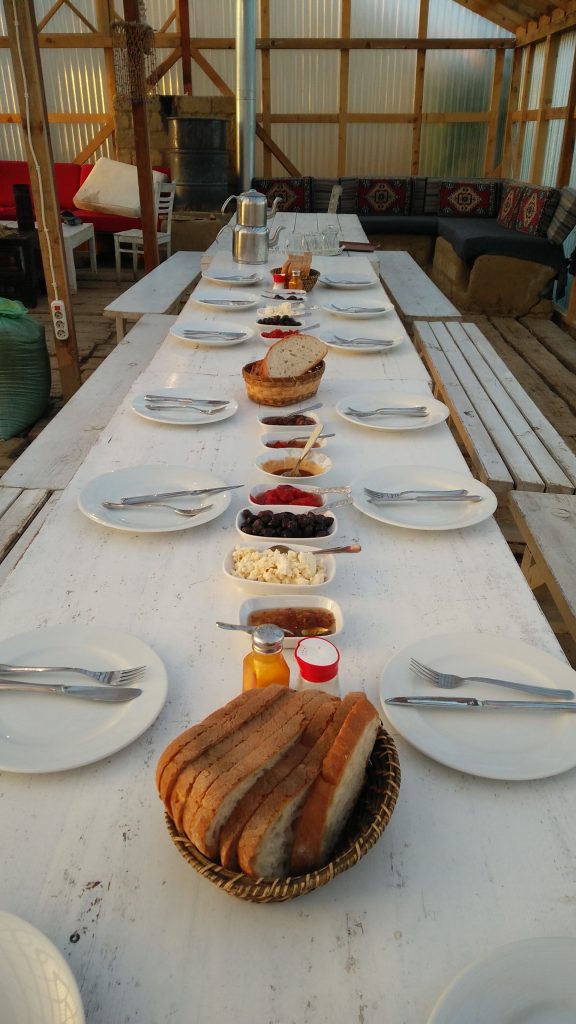
We worked from Monday to Friday, five hours a day with a long lunch and çay break in between, waking at the crack of dawn to help prepare breakfast. Our whip-cracking (figuratively) boss was Hüriye, an experienced farmer and hilarious, hardworking, and cheerful lady who was both mother and manager, hounding me if I was lazy with my work and comforting me with hugs and a bowl of çorba when I sniffled in the corner with an upset stomach (it happened).
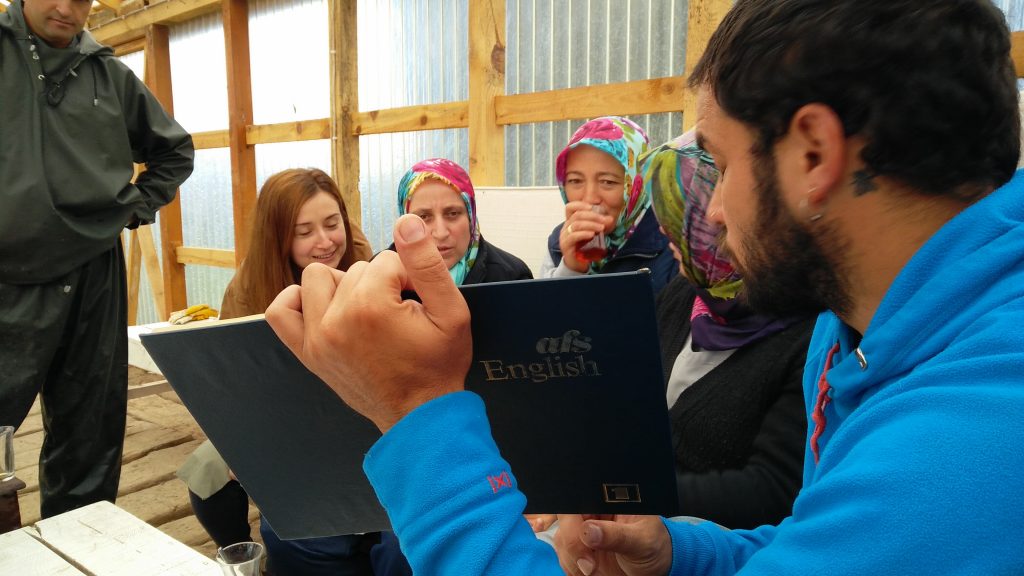
Instructions were given to those of us who didn’t know what we were doing (and, if necessary, translated by Turkish-speaking volunteers or someone at the farm who spoke English), and we were expected to contribute in any way our bodies and health would allow. The work itself involved some harvesting (peppers, okra, squash, tomatoes), digging and planting (beans and garlic), milking and “waste removal” of the resident cows, shucking and drying corn, cracking nuts, some heavy lifting, and bashing sesame seeds off of their stalks (my personal favorite).
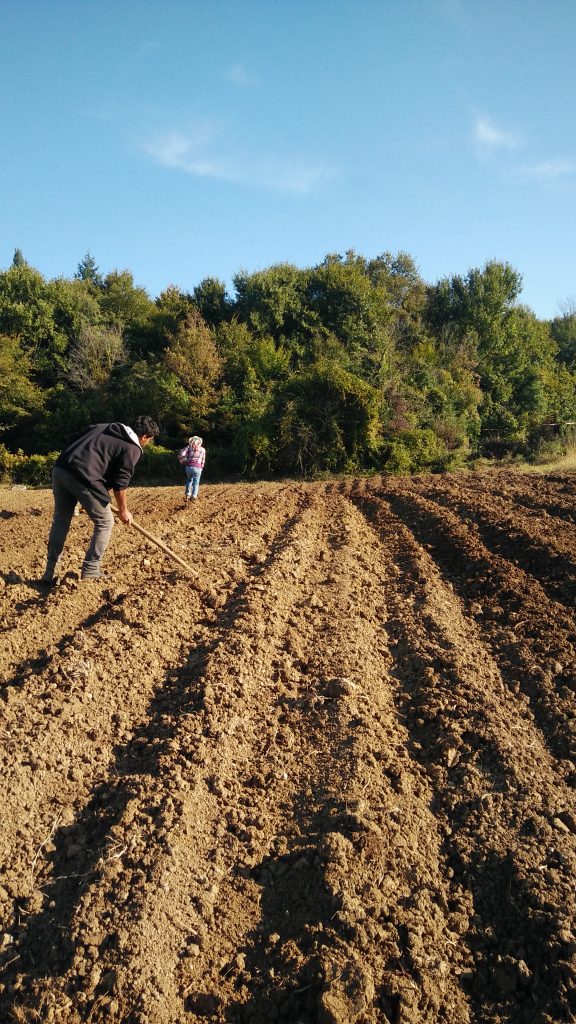
While working, we were often joined by the paid farmers if their duties didn’t take them elsewhere, and enjoyed great conversation (despite the language differences), singing (not so much in the mornings), and gossip. The lunch break was especially nice if we were outside and the meals were always a feast, prepared by the kitchen staff at the hotel who sometimes joined the farmers and volunteers for the mid-day meal.
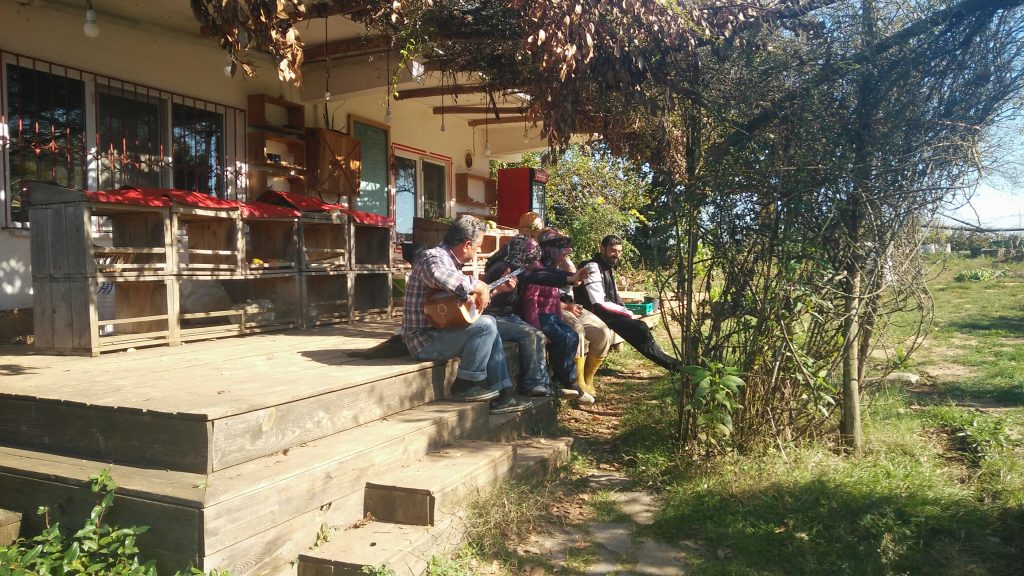
We usually finished work a little bit earlier than the farmers, who came in six days a week and took their days off in rotations. Before supper and on the weekends, we would spend time in the common room tent (there was Wifi and a few books and games), sit outside and admire a few of the farm, walk down to the coast for some sea air, or head to the nearby market town of Kandıra on the dolmuş. Surrounding the farm and hotel—which offers wilderness classes with a retired army general and friend of Ahmet and his wife Nar, the warmhearted dreamer behind and namesake of the operation—are beautiful forest trails to explore and run around in, as we did sometimes as well. Life, I felt, was always happening there.
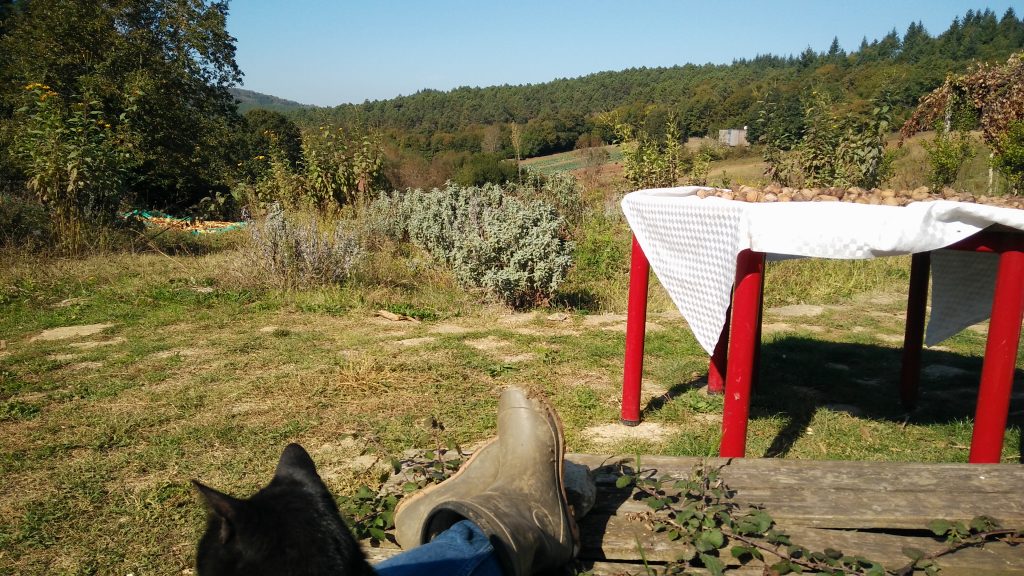
Ending the experience
One of the last days I was there coincided with Cumhuriyet Bayramı, Turkish Republic Day, which was celebrated in the common tent with farmers, hotel staff, volunteers, and a visiting kindergarten group. I have a particularly poignant memory of one of the farmers, a tall and efficient tractor driver, animal butcher, and all-around handyman named Saffet, being moved to tears during this celebration. Even though my glimpses into Turkish worlds, built up through interactions and relationships with people I met there, were obscured by a low language level and gaps in historical and cultural knowledge, I felt that I was able to connect deeply with people—Turkish or otherwise—through a shared experience of work and communication. Thinking of Saffet, I realized that what being Turkish meant to people was layered and complex, especially being someone who has a hard time associating with a national identity. I came to the farm seeking an alternative experience, and left with a deeper understanding of the diverse lifestyles and identities that bind people together in the name of a place.
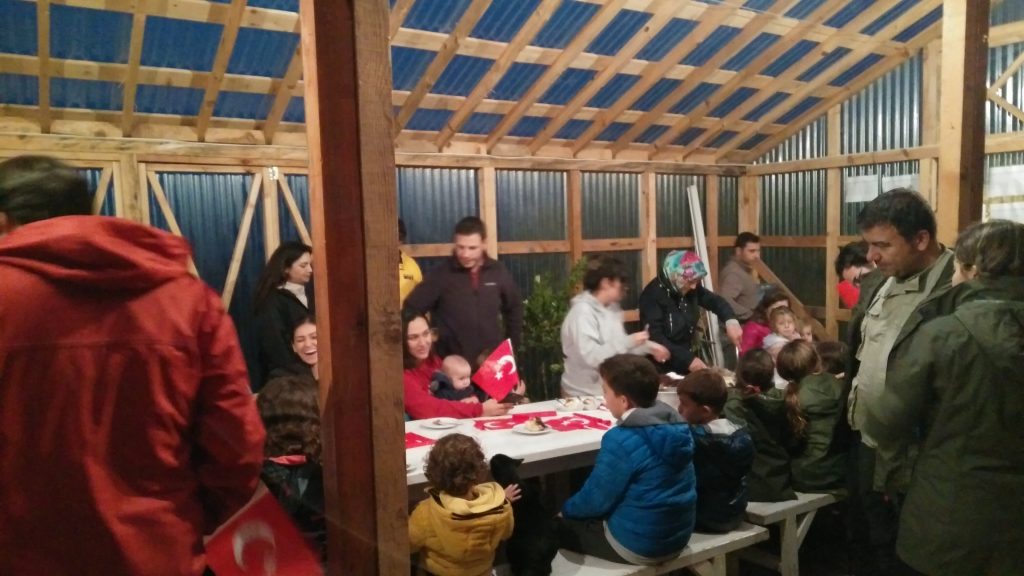
To end, then, the curiosity and soul-searching that led me to work on a farm ended up as a wonderful experience and enhanced my understanding of living things in general. The relationships I formed and the techniques I learned to help things grow resulted in my own personal growth—and I don’t just mean an expanded waistline from the fresh, revitalizing food. My experience with TaTuTa was a refreshing look into Turkish life outside of the country’s largest city, and was important to me as I sought the external and internal balance so desired as a stranger, a yabancı, in an unfamiliar place.









